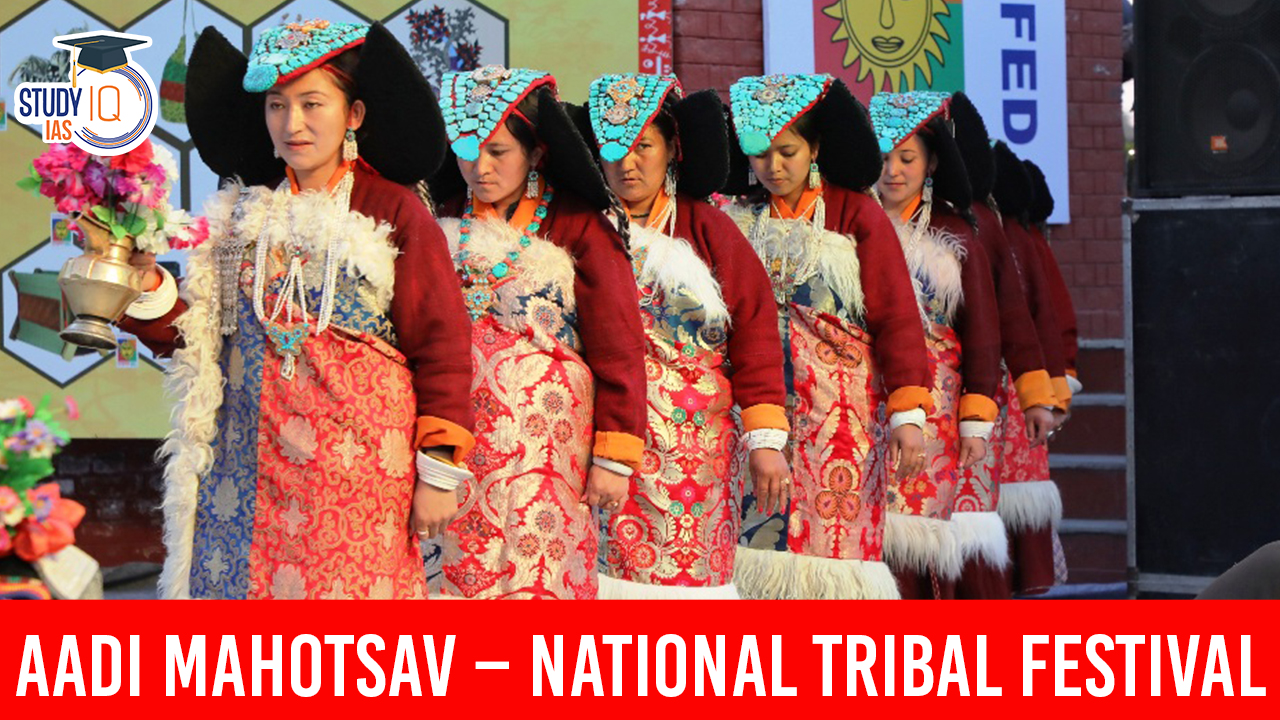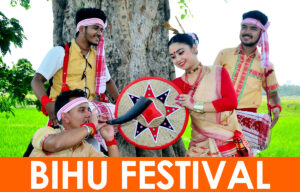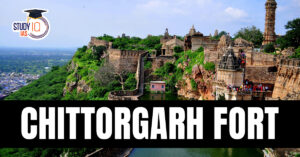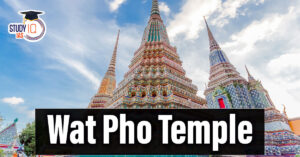Table of Contents
The Aadi Mahotsav – National Tribal Festival, held annually, serves as a vibrant celebration of India’s rich tribal culture, craftsmanship, and entrepreneurship. The 2024 edition, which concluded on February 18, was a resounding success, drawing in more than 50,000 visitors who immersed themselves in the diverse tapestry of tribal heritage.
Aadi Mahotsav – National Tribal Festival
The Aadi Mahotsav – National Tribal Festival commenced with an inaugural ceremony graced by the Hon’ble President, Smt. Droupadi Murmu, emphasizing the significance of tribal culture and entrepreneurship. Held at the Major Dhyan Chand National Stadium in New Delhi, the festival spanned nine days from February 10 to February 18, 2024, showcasing the vibrancy of India’s tribal communities.
We’re now on WhatsApp. Click to Join
Aadi Mahotsav – National Tribal Festival Overview
| Aspect | Description |
| Inauguration and Duration | Inaugurated by the Hon’ble President, Smt. Droupadi Murmu, the festival spanned nine days from February 10 to February 18, 2024. |
| Venture Capital Fund | Launch of the Venture Capital Fund for Scheduled Tribes aimed at fostering entrepreneurship and innovation among tribal youth. |
| Business-to-Business Workshop | Pioneering B2B workshop attracting representatives from prominent industry bodies and corporations, facilitating partnerships and market linkages. |
| Artistic Showcase | Platform for tribal artisans, artists, healers, chefs, and cultural troupes from across India to showcase their skills and cultural heritage. |
| PM JAN MAN Pavilion | Showcase of Particularly Vulnerable Tribal Groups (PVTGs) and Van Dhan products highlighting cultural heritage and sustainable livelihoods. |
| Cultural Performances | Evenings enlivened with cultural performances by over 400 tribal artists presenting rituals, harvest festivals, and unique traditions. |
| Commercial Success | Generated substantial revenue through cash sales exceeding Rs 1.80 crores and sales facilitated through digital commerce platforms. |
| Government Collaborations | Collaboration with various government ministries and organizations providing support services such as financial schemes, healthcare, skill development, and entrepreneurship promotion. |
Venture Capital Fund for Scheduled Tribes
A significant highlight of the festival was the launch of the Venture Capital Fund for Scheduled Tribes, aimed at nurturing a culture of entrepreneurship and innovation among tribal youth. This initiative underscores a commitment to economic empowerment and self-reliance within tribal communities, offering financial support and opportunities for growth.
Business-to-Business Workshop
The festival served as a hub for networking and collaboration, hosting a pioneering B2B workshop that attracted representatives from prominent industry bodies and corporations. This facilitated partnerships and market linkages in various sectors such as organic produce, handicrafts, honey, painting, and artifacts, providing tribal entrepreneurs with new avenues for expansion.
Artistic Brilliance and Cultural Showcase
The festival provided a platform for tribal artisans, artists, healers, chefs, and cultural troupes from across India to showcase their exceptional skills and cultural heritage. With approximately 1,100 participants representing diverse tribal communities, the event celebrated the richness of tribal craftsmanship, textiles, paintings, jewelry, and traditional crafts.
PM JAN MAN Pavilion and Van Dhan Products
Special pavilions dedicated to Particularly Vulnerable Tribal Groups (PVTGs) and Van Dhan products highlighted the cultural heritage and sustainable livelihoods within tribal communities. These platforms offered opportunities for economic empowerment and entrepreneurship, promoting the unique cultural identity of tribal groups.
Cultural Extravaganza and Performances
Evenings at the festival were enlivened with cultural performances by over 400 tribal artists from 20 States and Union Territories, showcasing rituals, harvest festivals, and unique traditions. These captivating performances provided visitors with a sensory journey through the diverse cultural tapestry of India’s tribal landscape.
Commercial Success and Market Access
The festival generated substantial revenue through cash sales exceeding Rs 1.80 crores, supplemented by sales facilitated through digital commerce platforms. Training sessions on social media utilization and workshops conducted by institutions like the Department of Design at IIT Delhi aimed to equip tribal artisans with the necessary skills for business expansion and market access.
Government Collaborations and Support Services
The festival witnessed collaboration with various government ministries and organizations, offering comprehensive support to tribal artisans and entrepreneurs. Initiatives ranged from providing information on financial schemes and healthcare services to facilitating skill development, postal services, and entrepreneurship promotion, fostering holistic socio-economic development within tribal communities.


 Bihu Festival and Dance of Assam, Histor...
Bihu Festival and Dance of Assam, Histor...
 Chittorgarh Fort: Mining Ban within 10 k...
Chittorgarh Fort: Mining Ban within 10 k...
 PM Modi visits Wat Pho Temple in Bangkok
PM Modi visits Wat Pho Temple in Bangkok





















